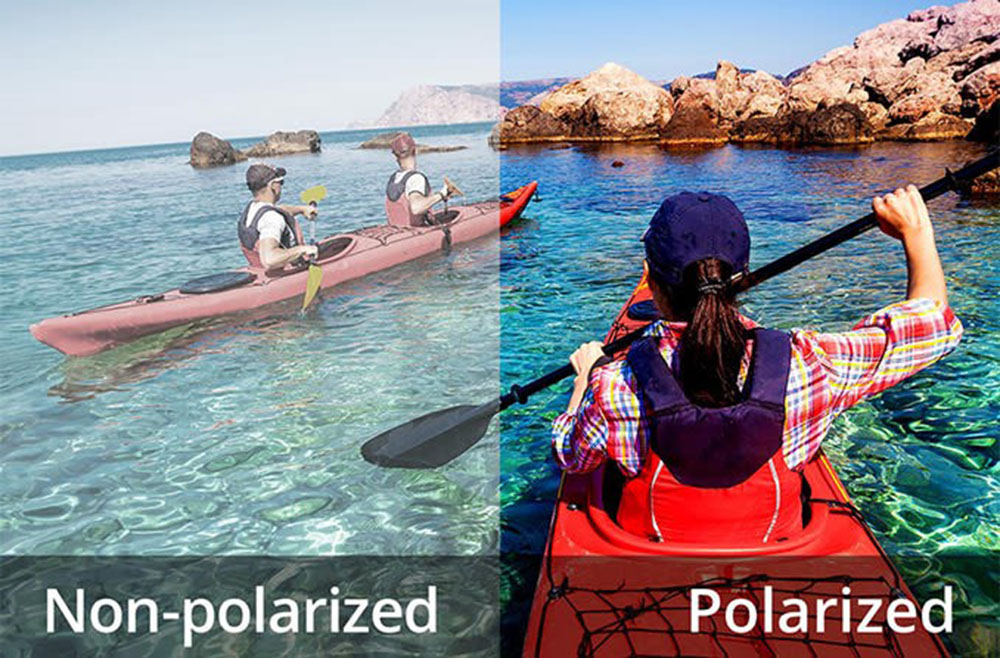
What's the difference between polarized and non-polarized sunglasses?
Polarized and non-polarized sunglasses both darken a bright day, but that’s where their similarities end. Polarized lenses can reduce glare, lessen reflections and make daytime driving safer; they also have a few drawbacks.
Picking out sunglasses is hard enough before having to worry about whether to go polarized or not. We'll lay out some key differences between these two types of sunny-weather shades so you can decide what’s best for you.
Outdoors
Many people notice the biggest difference between the polarized and non-polarized sunglasses when they are outdoors.
The special coating on polarized lenses is highly anti-reflective, working around the clock to reduce reflections, haze and glare. At the right angle, looking at a lake or ocean through polarized sunglasses will allow you to see past most surface reflections and through to the water below. Polarized lenses make some of the best sunglasses for fishing and boating activities.
Their anti-glare properties are also great for scenic viewing and nature hikes all around; the coating increases contrast during the day and often makes the sky appear a deeper blue.
Polarized lenses' anti-glare and increased contrast traits also can help people who suffer from light sensitivity, although the benefit can vary depending on the strength or darkness of the lens.
Screen usage
Digital screens, like the ones on your smartphone, laptop and TV can sometimes look different when viewed through polarized lenses.
For example, screens viewed through polarized lenses can appear slightly faded or, in some cases, completely dark, depending on the angle from which you’re viewing the screen. While this usually only happens when the screens are rotated at an unusual angle, it’s worth noting that non-polarized sunglasses don’t cause this visual distortion.
Are polarized sunglasses better than non-polarized shades?
Whether you choose to go the polarized sunglasses or non-polarized sunglasses route comes down to your preferences — and how you plan to use your shades. Many people gravitate toward the perks of polarized sunglasses, while others prefer non-polarized shades for a view that’s closer to that of the naked eye.
Of course, there's nothing wrong with having one of each kind of sunglasses.
Surely, you can try and compare them by yourself. https://www.universeoptical.com/polarized-lens-product/
With that in mind, if you’re experiencing symptoms of digital eye strain, talk to your eye doctor before getting polarized lenses.
Instead of sunglasses, nowadays, you can also have other options like our ARMOR Q-ACTIVE or ARMOR REVOLUTION which can provide a perfect shield against both high energy blue lights from your work environment indoor and ultraviolet lights when you take activities outdoor. Please go to our page https://www.universeoptical.com/armor-q-active-product/ to get more help and information.




